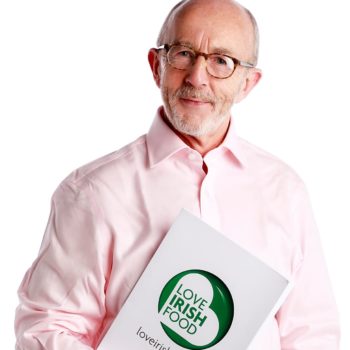One in five consumers struggling to make ends meet, new research shows

44 of the top 100 selling grocery brands in Ireland are Irish produced; this cohort has declined by 1% to a total of €1.09bn in combined sales
9 March 2023
Growing inflation on groceries is increasing pressure on consumers and changing the way they shop, delegates at a key food and drinks industry symposium hosted by Love Irish Food heard today.
The Love Irish Food webinar, ‘Local Economy: Coping with the Present – Planning for Future Options’, which was streamed live online this morning, included an opening address from Love Irish Food’s executive director, Kieran Rumley and keynote speaker Natasha Adams, CEO of Tesco Ireland on growing and adapting to a rapidly changing retail food environment.
According to research from Kantar, presented during the Love Irish Food conference, 23% of consumers are struggling to make ends meet and cover expenses as grocery prices increase. As shoppers are looking for ways to save money, many are choosing cheaper brands and moving to private labels.
However, Irish brand share of sales across the top 100 grocery brands has dropped only slightly, by 1%, and consumers are continuing to choose Irish brands as we move on from the pandemic. Kantar research shows that 44 of the top 100 selling grocery brands in Ireland during 2022 were Irish produced.
Over the past year, the combined sales of these 44 brands have reached a total of €1.09bn. This is a 24% jump in just five years since 2017.
These Irish brands, which include Love Irish Food member brands, currently capture 48% of the money spent among the top 100 selling take home grocery brands in Ireland. Some of the Love Irish Food member brands include: Ballygowan, Cadburys Dairy Milk, Cadburys Twirl, Flavahan’s, Glenisk Organic, Keeling, McCambridges, Miwadi and Tayto.
David Berry, managing director, Ireland at Kantar Worldpanel presented the research at the Love Irish Food symposium. Other industry experts included Gerard Brady, head of policy and chief economist, Ibec who will provide a glimpse into the future and what it is likely to bring.
Kieran Rumley, executive director at Love Irish Food, highlighted the importance of consumers continuing to support Irish produce.
“It is concerning to see consumers struggling as grocery prices increase but it is promising to see people continuing to buy Irish produced food brands as part of the weekly shop,” Rumley said.
“Despite the pressure on households’ spend, brands still dominate the share of the grocery basket in Irish households,” he added. “Buying more Irish-made products helps Irish businesses survive and protects Irish jobs, which is critical in the current climate and will be crucial in food security and driving economic recovery.”
Meanwhile, Natasha Adams, CEO of Tesco Ireland, said that working with small and medium local Irish suppliers has “never felt so important” as now.
“With household budgets under increasing pressure we are absolutely committed to helping our customers, by keeping a laser focus on the cost of the weekly shop,” Adams said.
“Working with over 500 small and medium local Irish suppliers has never felt more important as we navigate these challenges together. We are proud to sell almost 70% of Love Irish Food member products across Tesco stores nationwide, and we are committed to continuing to focus on supporting Irish and local food suppliers throughout 2023,” she added.



 Print
Print






Fans 0
Followers